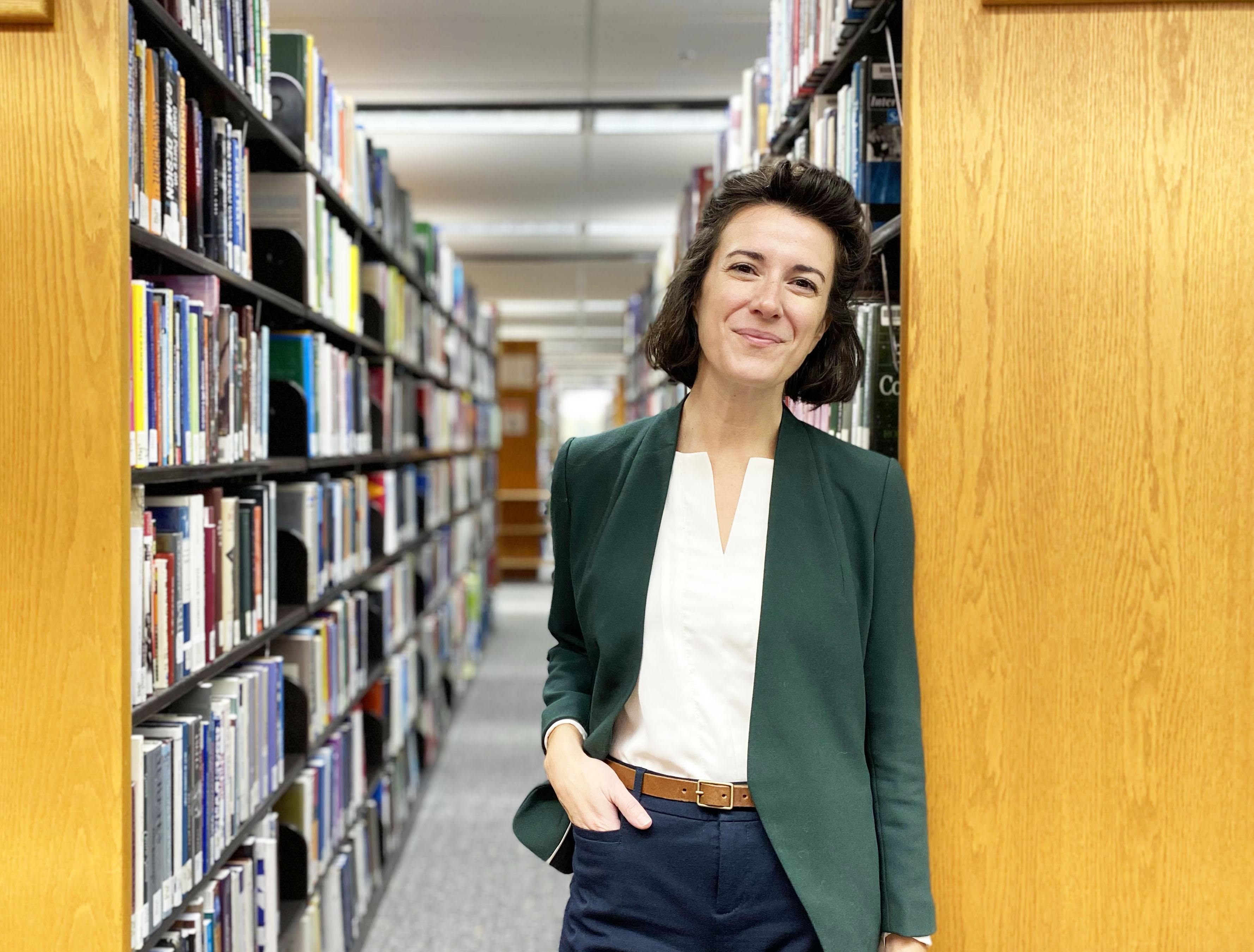
Whitney Sperrazza
Assistant Professor
Whitney Sperrazza
Assistant Professor
Bio
Prof. Sperrazza is currently on research leave through Summer 2023.
My work sits at the intersections of early modern literary studies, histories of science, intersectional feminist theory, and digital humanities. I take a highly interdisciplinary approach in both my research and teaching, always interested in the questions that form in disciplinary contact zones.
I am currently at work on several major projects. First, my in-progress book traces an alternative history of women’s engagement with science. Instead of looking for singular examples of female scientists throughout history, I turn to the work of female poets who were engaging with new scientific questions and methods in 16th- and 17th-century England. The book centers on the following questions: how does women's poetry prompt us to reconsider what counts as scientific work? what can women's writing teach us about the relationship between poetic and scientific practices? what are the different ways in which science can manifest poetically?
Second, I am building a digital project prototype exploring the relationships among book history, textile work, and computer programming. /The Craft of Computation/ will be a robust digital exhibit featuring the first book made by an automated machine, a silk woven edition of /Les Laboureurs/ (1883) by Alphonse de Lamartine, held at the Cary Graphic Arts Collection at RIT. With this project, I aim to expand the familiar story of computing history and bolster efforts to bridge humanities and STEM fields.
Finally, together with a regional team of faculty, staff, students, community educators, and activists, I am designing and building a digital humanities project titled /Resistance Mapping/. This interactive project supports ongoing anti-racist curriculum development for Rochester schools, and will serve as a portal into place-based racism and resistance in Monroe County, NY.
I teach in both the English Department and the Digital Humanities and Social Sciences Program. My goal as an instructor is to help students understand and think beyond disciplinary boundaries, always with an eye to the relationship between past and present, physical and digital.
Select Scholarship
Currently Teaching
In the News
-
December 19, 2023
![black and white aerial view of a city neighborhood.]()
New resource helps teachers map lessons on area's racist history
WXXI talks to Whitney Sperrazza, assistant professor in the Department of English, about the Resistance Mapping project.
-
December 13, 2023
![crowd of protestors walking down a street with signs that read, defund the police, and skin color is not reasonable suspicion.]()
Resistance Mapping project provides a digital home for antiracist educational resources for K-12 educators
Resistance Mapping is a local, collaborative digital humanities project focused on how Monroe County, N.Y., has been shaped by histories of institutional racism and collective community resistance. Scholars and students affiliated with RIT’s humanities, computing, and design program and the University of Rochester’s Digital Scholarship at River Campus Libraries helped create a website to host the educational content.
-
March 29, 2022
Sperrazza awarded grant for book project
Featured Work
“...I hope this work will have an impact on current disciplinary divides—both in research and teaching spaces.
Whitney Sperrazza
As I excavate this nuanced history of women’s scientific work in poetry, I offer a longer, deeper narrative about the mutual influence of literary and scientific developments.” — Whitney Sperrazza,...






